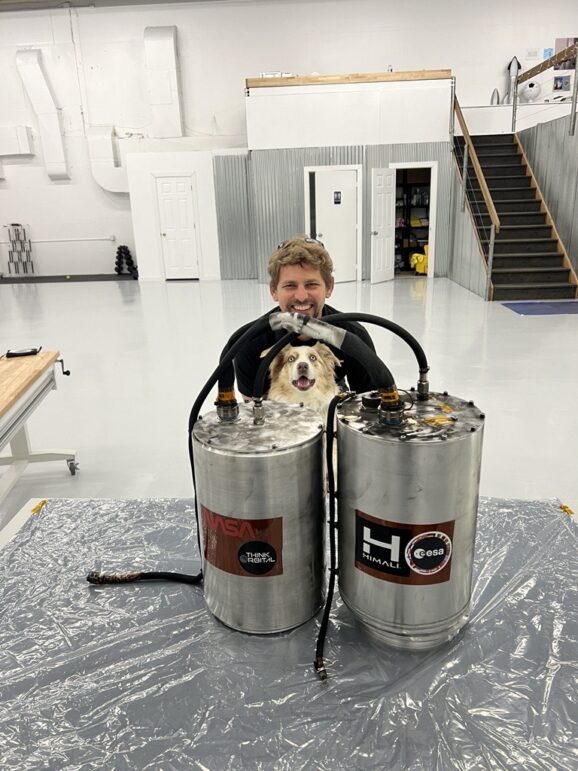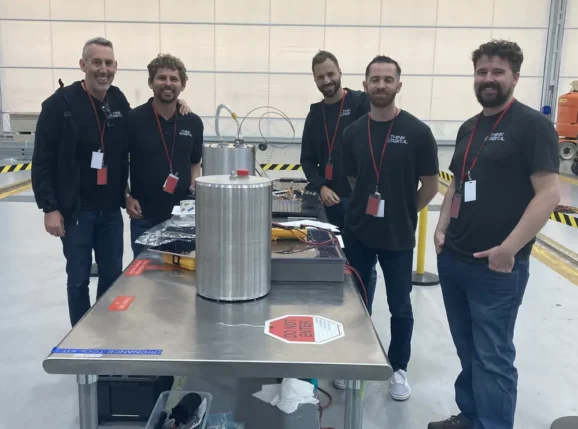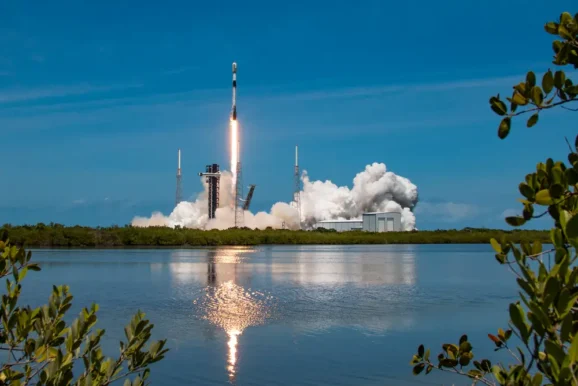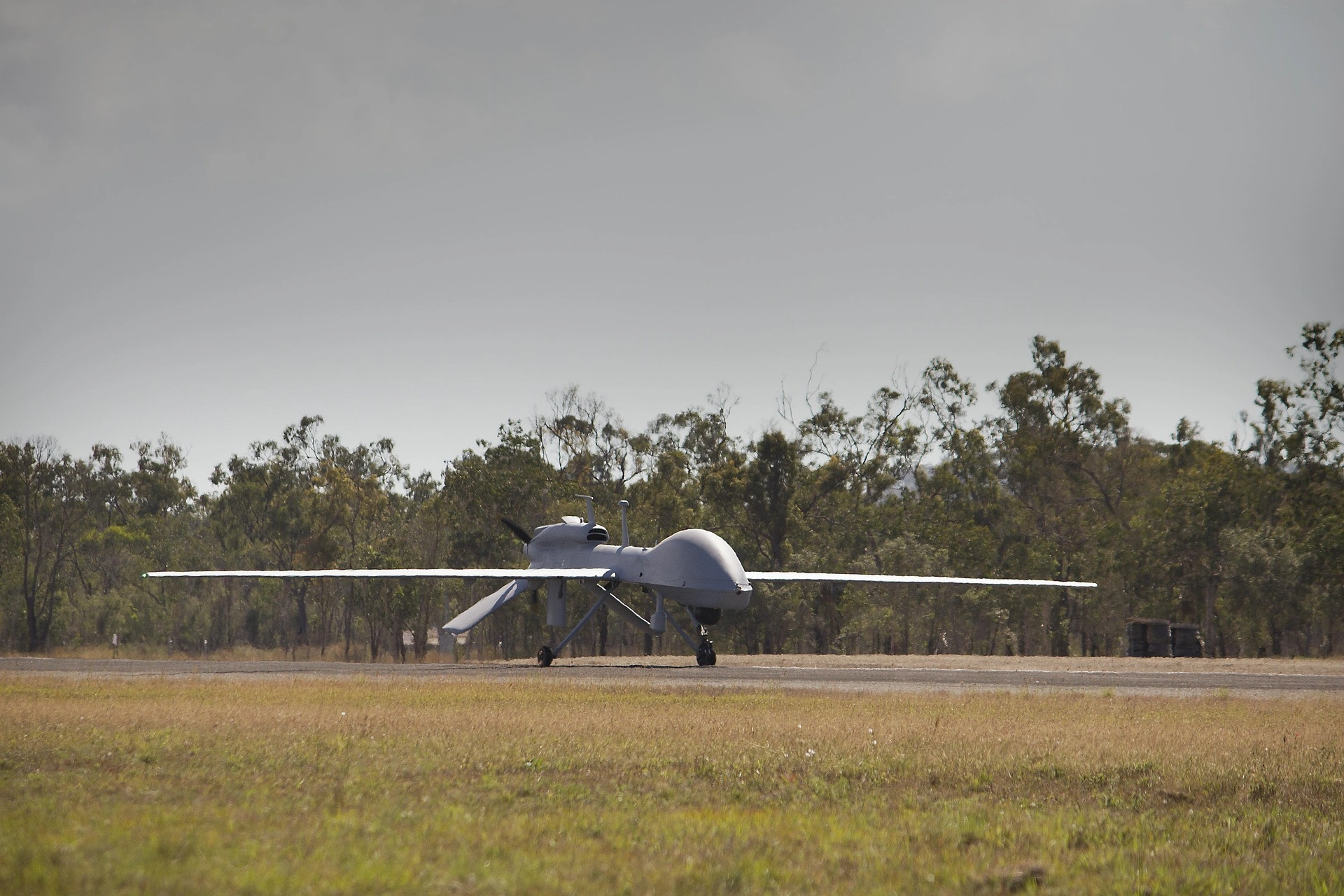First-ever ‘Space Weld’ could pave way for lunar living

John E. Kaye
- Published
- Home, News, Technology

It was one small step for man but, conceivably, a giant leap for mankind
NASA’s hopes of building homes on the moon inched closer to reality last week after the first-ever robotic weld was carried out in space.
An autonomous welding machine successfully fused a series of aluminium plates together in a “historic” test that could pave the way for large-scale lunar construction projects.
The machine uses electron beam welding (EBW) technology to precisely melt and join metals in zero gravity.
It can be deployed in environments with extreme temperature changes and in conditions well below normal atmospheric pressures, making it ideal for use in the vacuum of space.

The US firm behind the technology, ThinkOrbital, said the In-Space Servicing, Assembly and Manufacturing (ISAM) tests marked a “significant leap forward in space innovation”.
It is now planning to test other parts of its welding system, which include an autonomous robotic arm with X-ray capabilities, later in the year.
If those experiments are also successful, the technology will be used to repair satellites and spacecraft in orbit, reducing the need for expensive manned missions.
But the same welding system could also be used to fabricate space station modules and other metal habitats to support human life – a key NASA objective.
In 2022, the American space agency awarded US construction technology company ICON $60 million to build a home on the moon by 2040.
ICON plans to take a giant 3D printer to the moon and use lunar concrete made of rocks, mineral fragments and dust to layer the structure on the surface.

A spokesman for ThinkOrbital said: “We are thrilled to announce that we’ve achieved the majority of our Flight-1 objectives, marking a significant leap forward in space innovation.
“Our journey has been nothing short of extraordinary, from the groundbreaking first-ever autonomous in-space weld to the historic return of flown-in-space Electron-beam welder samples.
“These samples will be meticulously analyzed by NASA and the European Space Agency, paving the way for groundbreaking discoveries.”
ThinkOrbital’s welding system was sent to space on board the SpaceX Falcon 9 on May 6.
The metal test plates it welded were returned to earth on the Falcon’s booster and the strength and accuracy of the welds are currently being examined by NASA and the European Space Agency.
ThinkOrbital was among the companies NASA chose last year for Space Act Agreements, which aim to advance commercial space capabilities.
It said: “Throughout this milestone-filled journey, we have designed and built the world’s first autonomous in-space welding system, conducted and passed rigorous vibration, shock, and thermal testing, garnered FAA and FCC flight authorization, and successfully launched and landed on Falcon 9 on May 6, 2024.
“This is just the beginning of our continued commitment to pushing the boundaries of possibility in space exploration.”

Video – courtesy of ThinkOrbital
Images © ThinkOrbital
RECENT ARTICLES
-
 WPSL targets £16m-plus in global sponsorship drive with five-year SGI partnership
WPSL targets £16m-plus in global sponsorship drive with five-year SGI partnership -
 Dubai office values reportedly double to AED 13.1bn amid supply shortfall
Dubai office values reportedly double to AED 13.1bn amid supply shortfall -
 €60m Lisbon golf-resort scheme tests depth of Portugal’s upper-tier housing demand
€60m Lisbon golf-resort scheme tests depth of Portugal’s upper-tier housing demand -
 2026 Winter Olympics close in Verona as Norway dominates medal table
2026 Winter Olympics close in Verona as Norway dominates medal table -
 Europe’s leading defence powers launch joint drone and autonomous systems programme
Europe’s leading defence powers launch joint drone and autonomous systems programme -
 Euro-zone business activity accelerates as manufacturing returns to expansion
Euro-zone business activity accelerates as manufacturing returns to expansion -
 Deepfake celebrity ads drive new wave of investment scams
Deepfake celebrity ads drive new wave of investment scams -
 WATCH: Red Bull pilot lands plane on moving freight train in aviation first
WATCH: Red Bull pilot lands plane on moving freight train in aviation first -
 Europe eyes Australia-style social media crackdown for children
Europe eyes Australia-style social media crackdown for children -
 These European hotels have just been named Five-Star in Forbes Travel Guide’s 2026 awards
These European hotels have just been named Five-Star in Forbes Travel Guide’s 2026 awards -
 McDonald’s Valentine’s ‘McNugget Caviar’ giveaway sells out within minutes
McDonald’s Valentine’s ‘McNugget Caviar’ giveaway sells out within minutes -
 Europe opens NanoIC pilot line to design the computer chips of the 2030s
Europe opens NanoIC pilot line to design the computer chips of the 2030s -
 Zanzibar’s tourism boom ‘exposes new investment opportunities beyond hotels’
Zanzibar’s tourism boom ‘exposes new investment opportunities beyond hotels’ -
 Gen Z set to make up 34% of global workforce by 2034, new report says
Gen Z set to make up 34% of global workforce by 2034, new report says -
 The ideas and discoveries reshaping our future: Science Matters Volume 3, out now
The ideas and discoveries reshaping our future: Science Matters Volume 3, out now -
 Lasers finally unlock mystery of Charles Darwin’s specimen jars
Lasers finally unlock mystery of Charles Darwin’s specimen jars -
 Strong ESG records help firms take R&D global, study finds
Strong ESG records help firms take R&D global, study finds -
 European Commission issues new cancer prevention guidance as EU records 2.7m cases in a year
European Commission issues new cancer prevention guidance as EU records 2.7m cases in a year -
 Artemis II set to carry astronauts around the Moon for first time in 50 years
Artemis II set to carry astronauts around the Moon for first time in 50 years -
 Meet the AI-powered robot that can sort, load and run your laundry on its own
Meet the AI-powered robot that can sort, load and run your laundry on its own -
 Wingsuit skydivers blast through world’s tallest hotel at 124mph in Dubai stunt
Wingsuit skydivers blast through world’s tallest hotel at 124mph in Dubai stunt -
 Centrum Air to launch first European route with Tashkent–Frankfurt flights
Centrum Air to launch first European route with Tashkent–Frankfurt flights -
 UK organisations still falling short on GDPR compliance, benchmark report finds
UK organisations still falling short on GDPR compliance, benchmark report finds -
 Stanley Johnson appears on Ugandan national television during visit highlighting wildlife and conservation ties
Stanley Johnson appears on Ugandan national television during visit highlighting wildlife and conservation ties -
 Anniversary marks first civilian voyage to Antarctica 60 years ago
Anniversary marks first civilian voyage to Antarctica 60 years ago



























